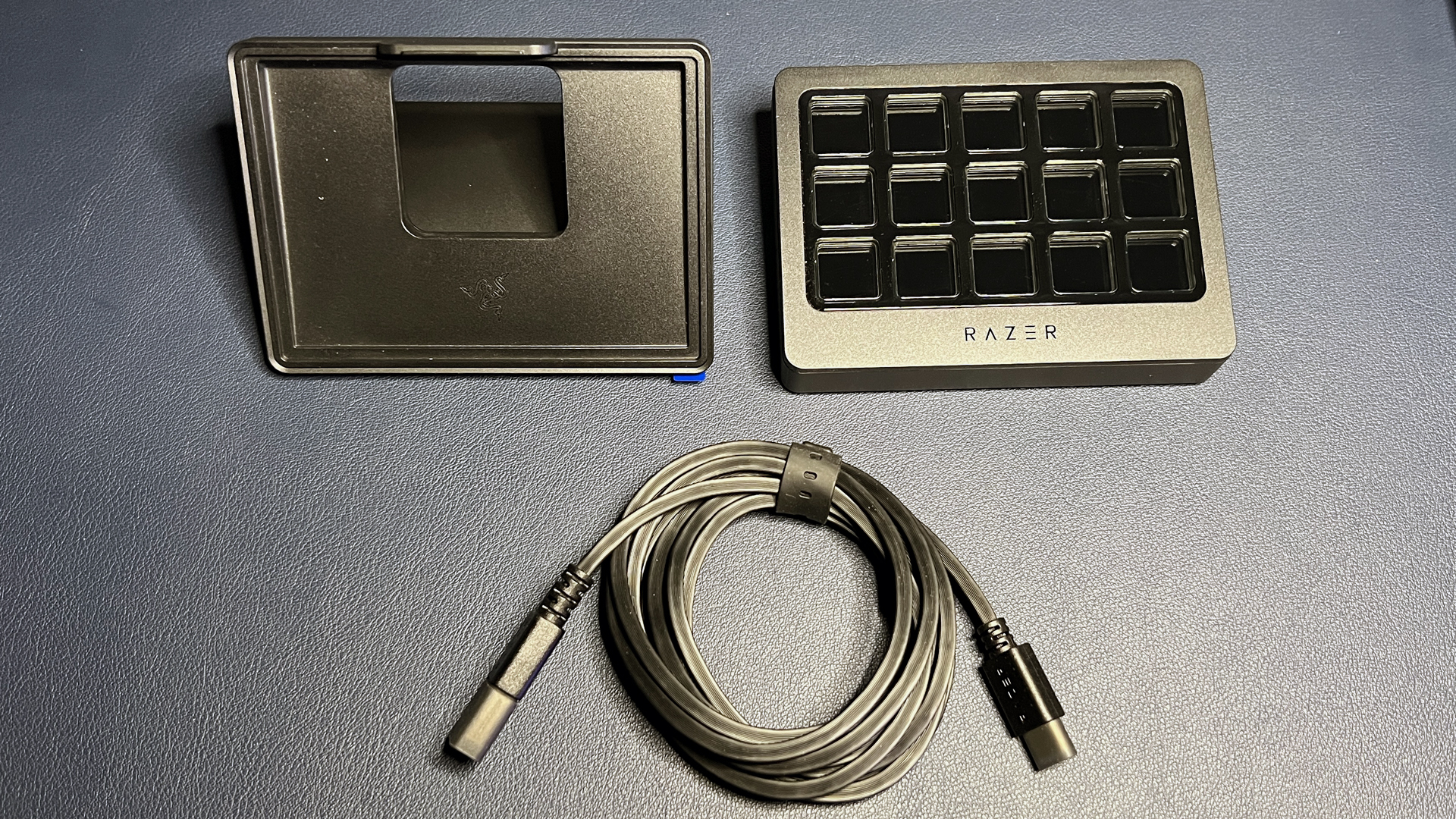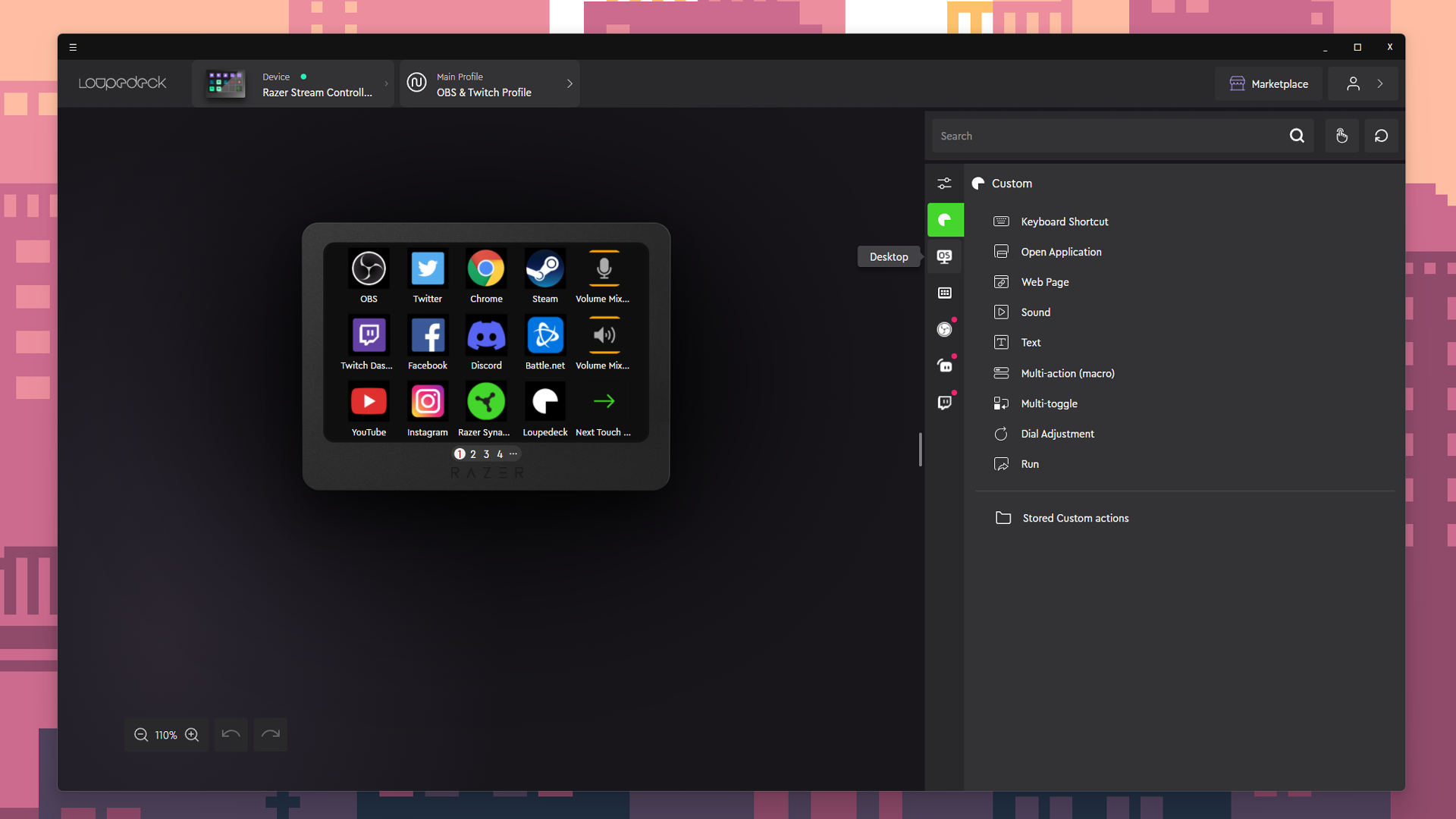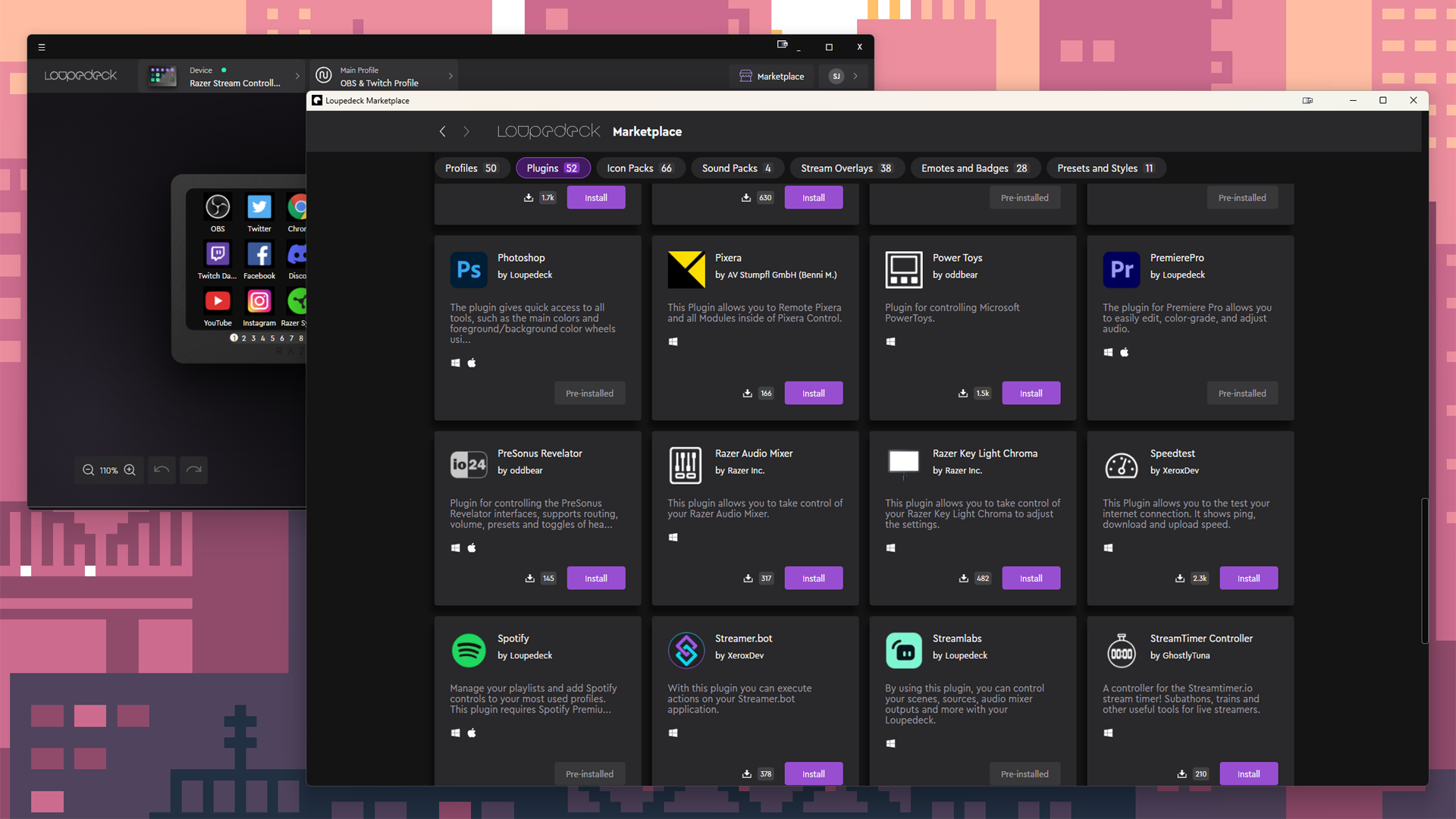Tom's Hardware Verdict
The Razer Stream Controller X is compact, tactile, and good for people who like Loupedeck’s software but Elgato’s form factor.
Pros
- +
Tactile LCD buttons are bright and feel good
- +
Sturdy, sticky stand
- +
Native support for Adobe apps
Cons
- -
Navigation can't be changed
- -
Stand cutout may put stress on cable
- -
Only one input type
Why you can trust Tom's Hardware
Razer is all about streaming and content creation these days (who isn’t?), and it seems to be targeting Elgato directly with its latest streaming deck. In fact, when I first saw the new Razer Stream Controller X, I thought Razer had ditched its partnership with Loupedeck and turned to Elgato (but then I realized that wouldn’t really make sense, as Elgato is owned by semi-rival gaming company Corsair). But doesn’t the new Stream Controller X look an awful lot like the Elgato Stream Deck MK.2?
This is Razer’s second collaboration with Finnish streaming deck maker Loupedeck — and while the first Razer Stream Controller (launched July 2022) was little more than a reskin of one of Loupedeck’s existing consoles, the new Stream Controller X looks like a brand-new product. (Well, brand-new-ish, since it looks a lot like Elgato’s MK.2.) The Stream Controller X is a small, chunky deck with 15 tactile LCD buttons. It’s powered by Loupedeck’s software and it comes with a detachable magnetic stand and a swappable magnetic faceplate, and is available now for $149.99.
Design of the Stream Controller X
The Stream Controller X looks a lot like the Elgato Stream Deck MK.2, from the 15 tactile LCD buttons to the swappable magnetic faceplate. It’s not an exact replica, however — the Stream Controller X is slightly smaller, measuring 4.37 inches (111 mm) wide by 3.17 inches (80.7 mm) deep. It’s 1.18 inches (30 mm) tall at its highest point without the stand and 3.1 inches (78.9 mm) tall with the stand. For comparison, the MK.2 measures 4.6 inches (118 mm) wide by 3.3 inches (84 mm) deep, and is 1 inch (25 mm) tall without the stand (3 inches / 76 mm with the stand).
The Stream Controller X has a listed weight of 0.39 pounds (177 g), but I’m not sure where this number came from, as my review unit weighed 0.32 pounds (147 g) without the stand or cable, 0.02 pounds (200 g) with the cable but without the stand, 0.7 pounds (317 g) with the stand but without the cable, and 0.81 pounds (369 g) with the cable and the stand. The MK.2, for comparison, weighs 0.32 pounds (145 g) without its cable or stand, and weighs 0.6 pounds (270 g) with its stand (but without its cable).
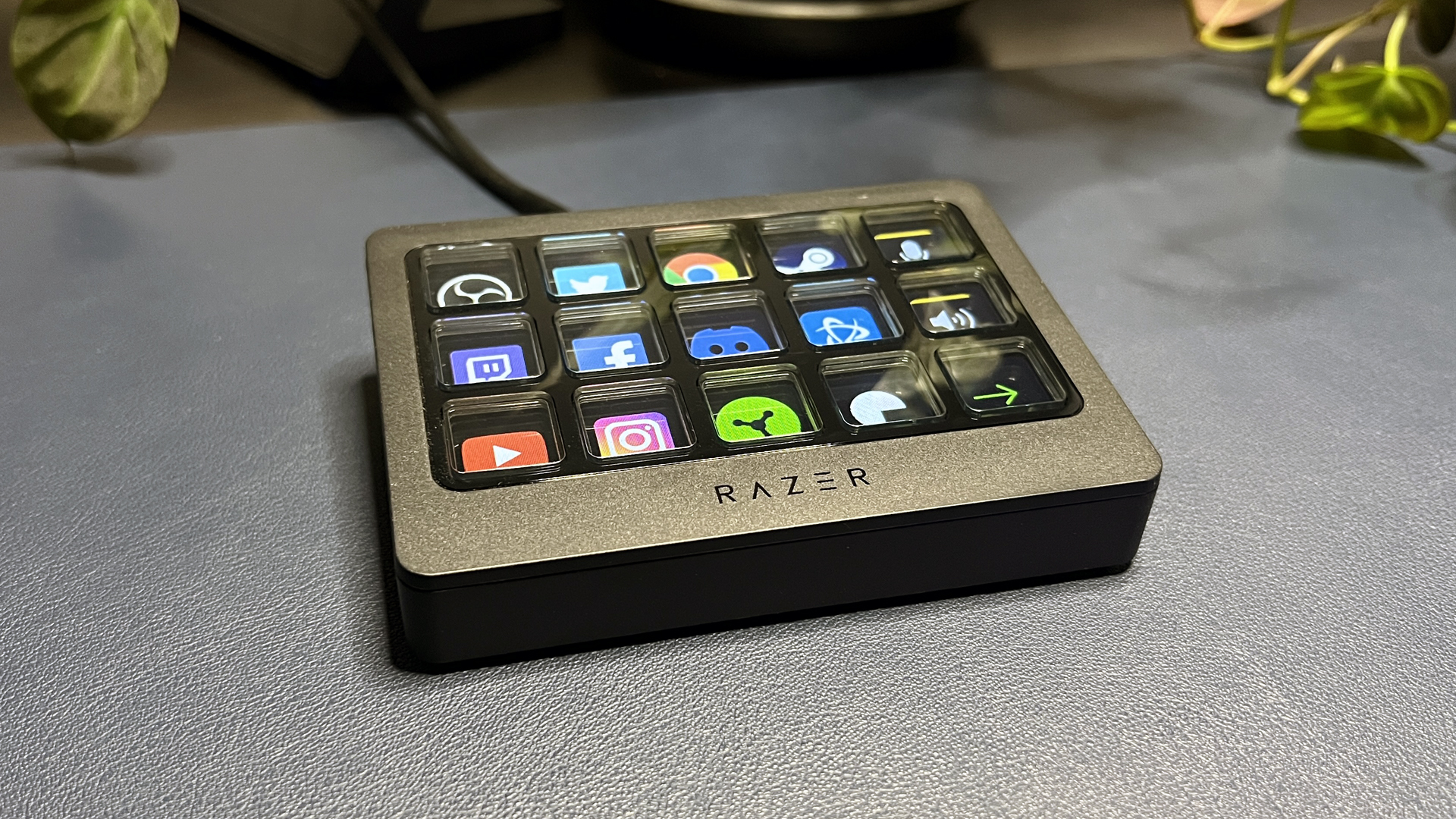
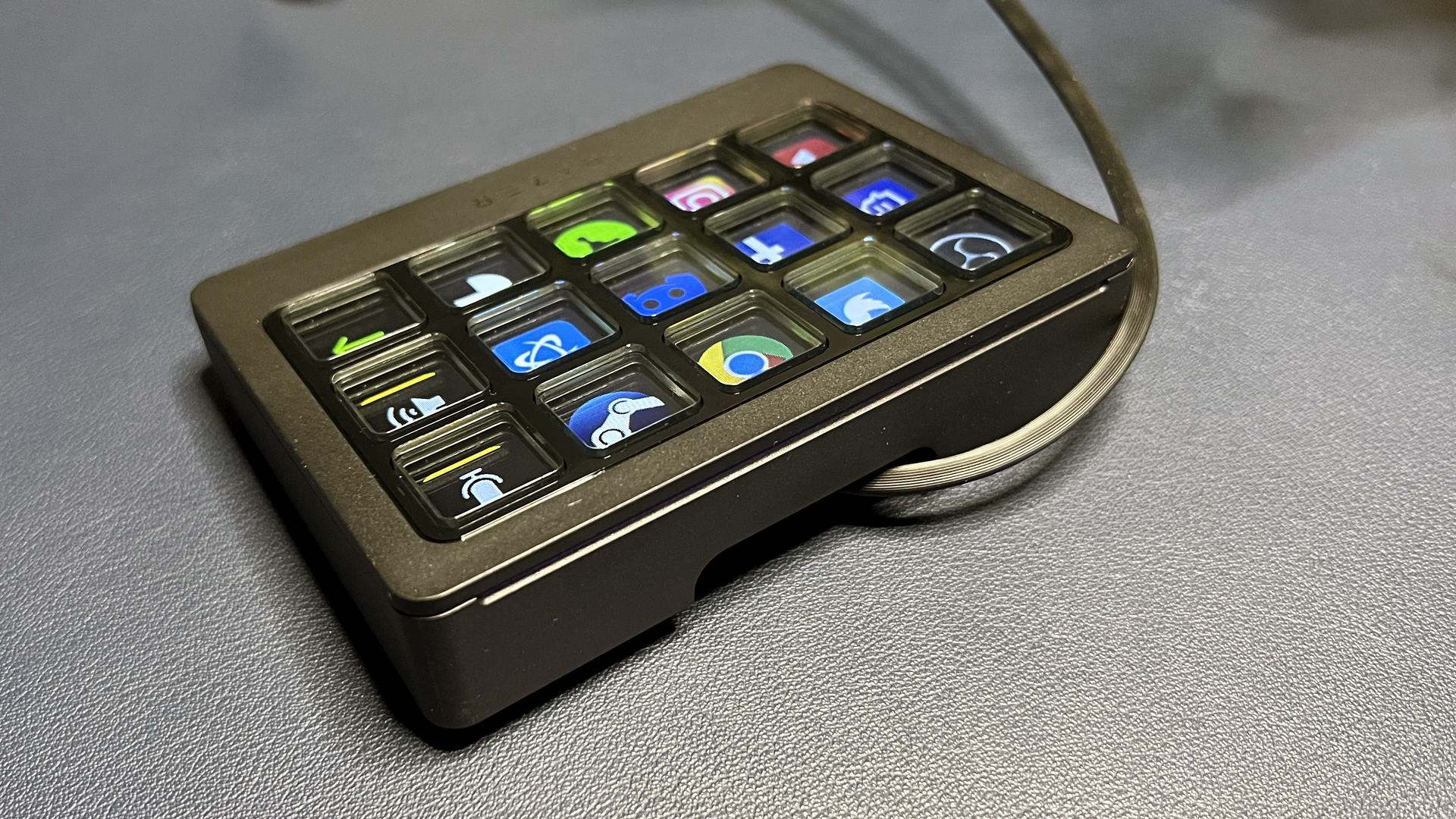
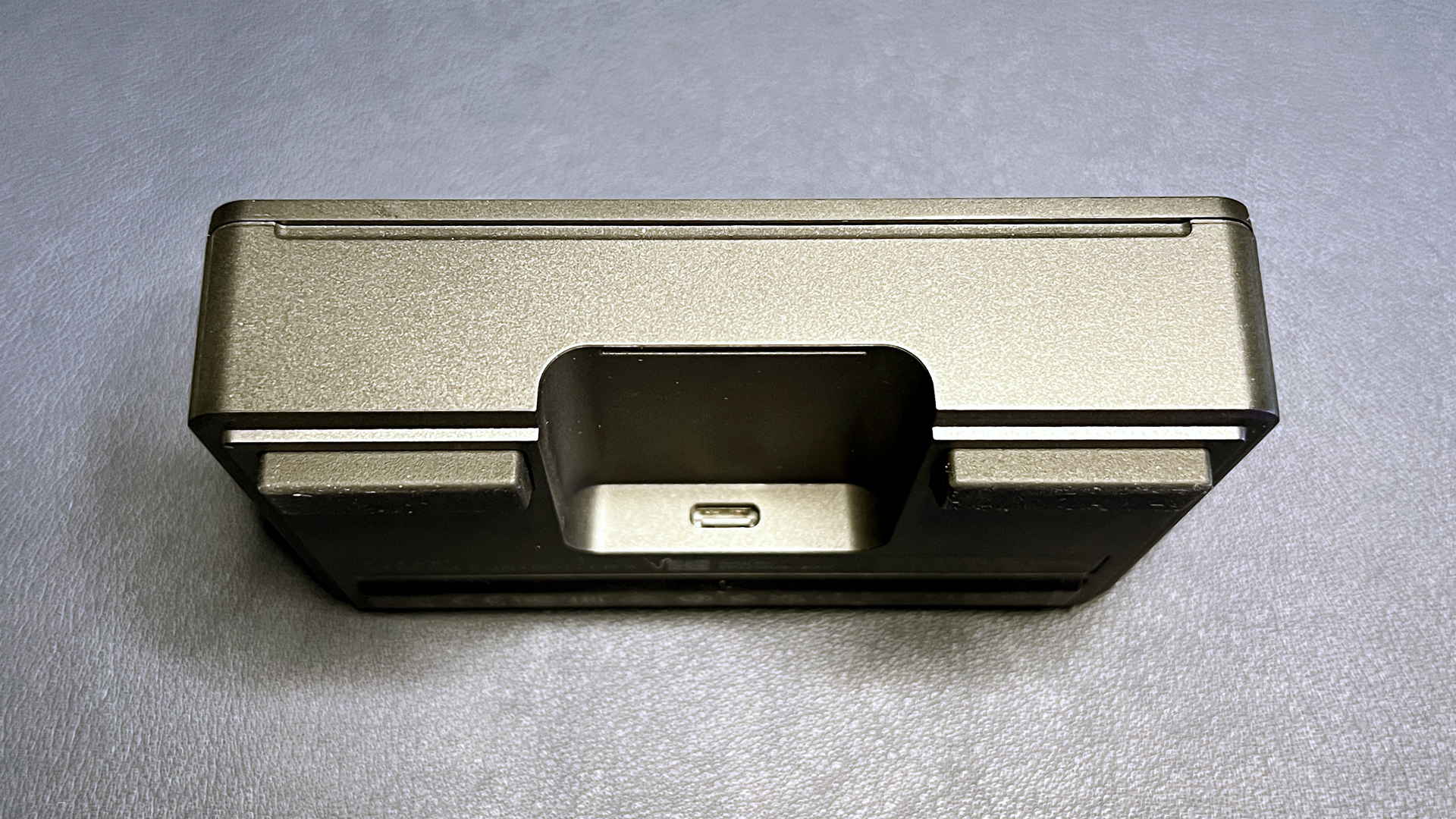
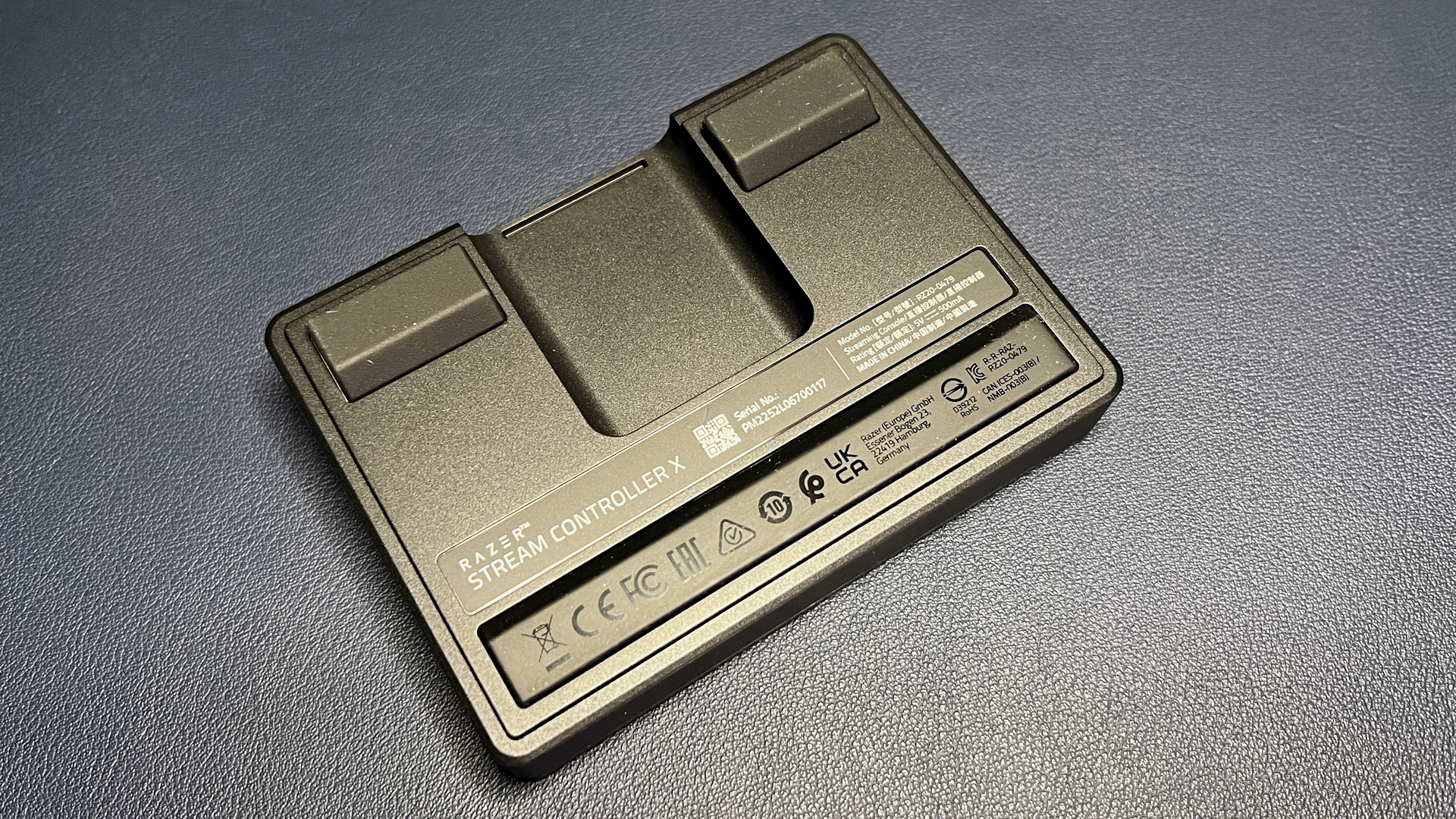
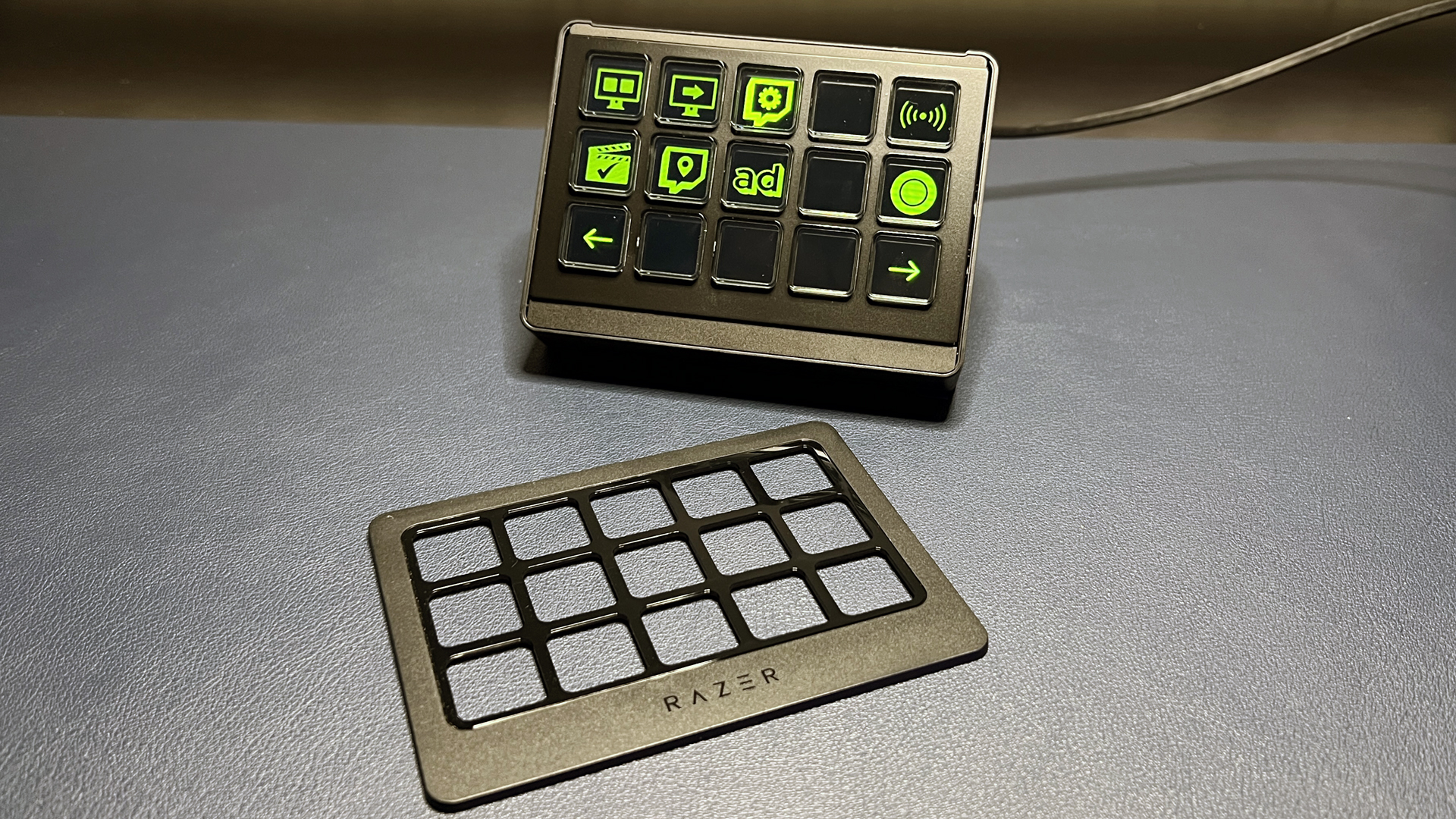
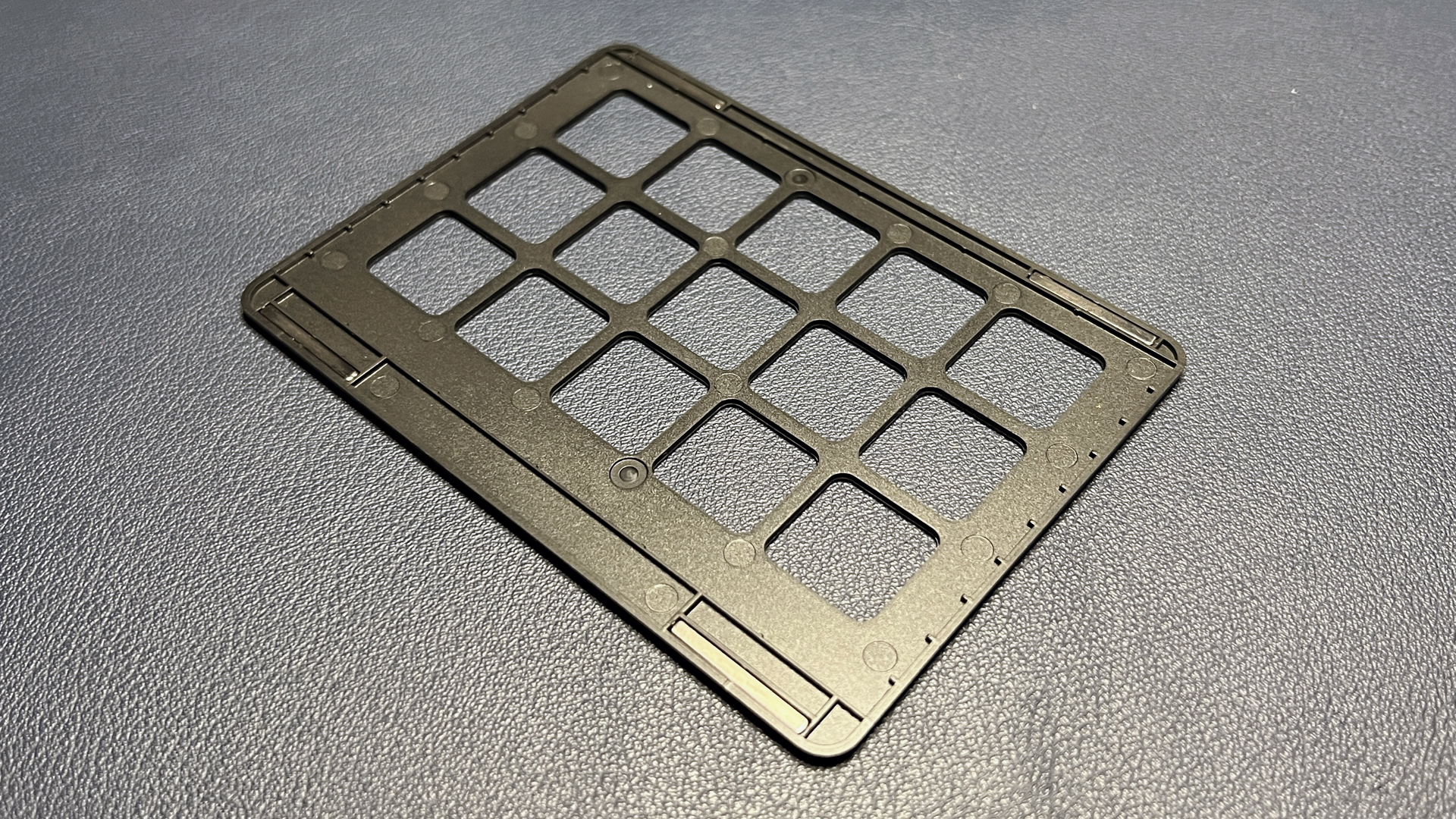
The Stream Controller X is housed in a sturdy, matte black plastic chassis with raised rubber feet and a rectangular cutout on its back to accommodate the device’s USB-C cable. Its faceplate, which is magnetic and can be easily swapped out, features the Razer wordmark printed at center-bottom, and has glossy accents surrounding the device’s 15 clear, plastic tactile LCD buttons.
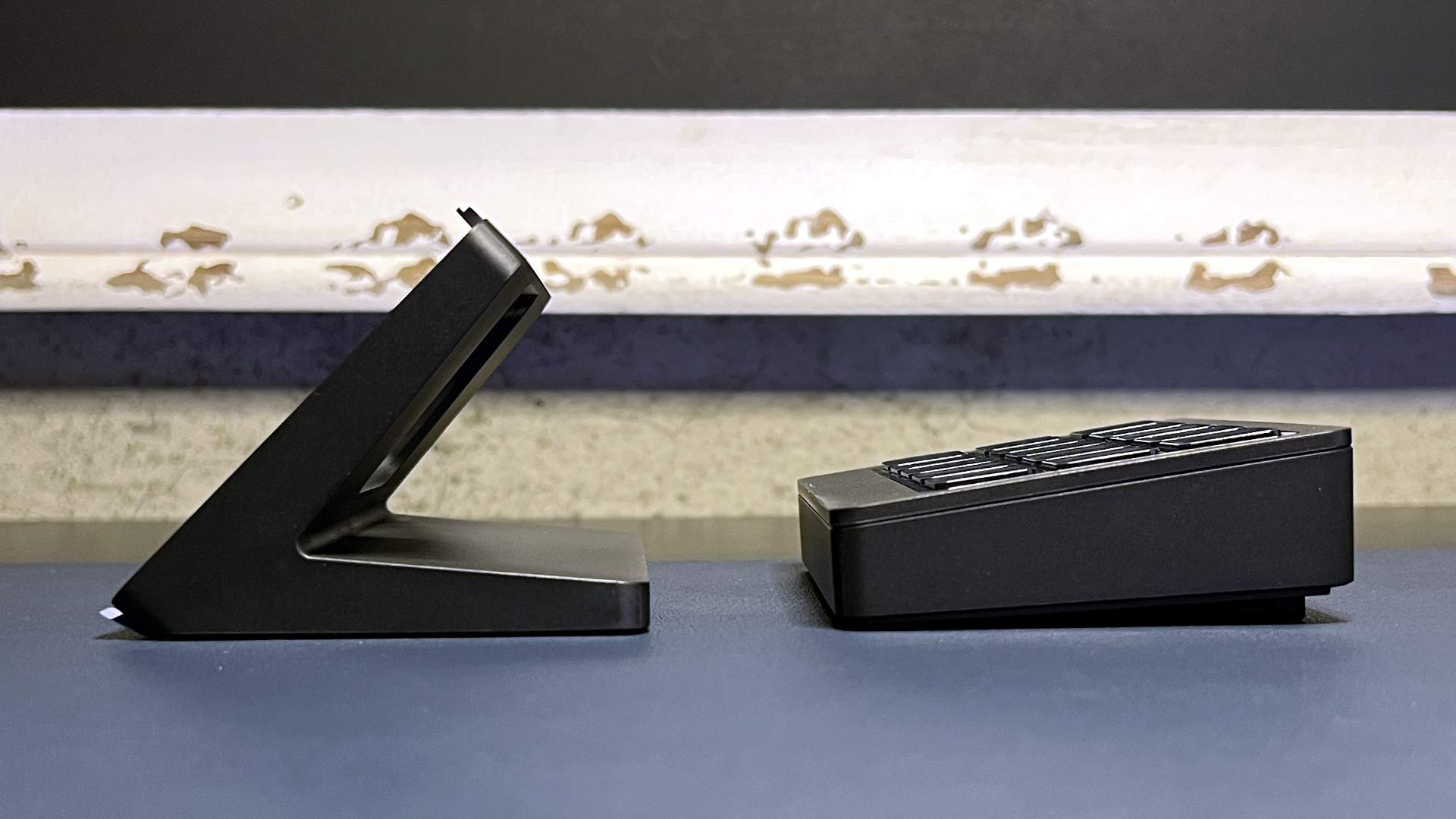
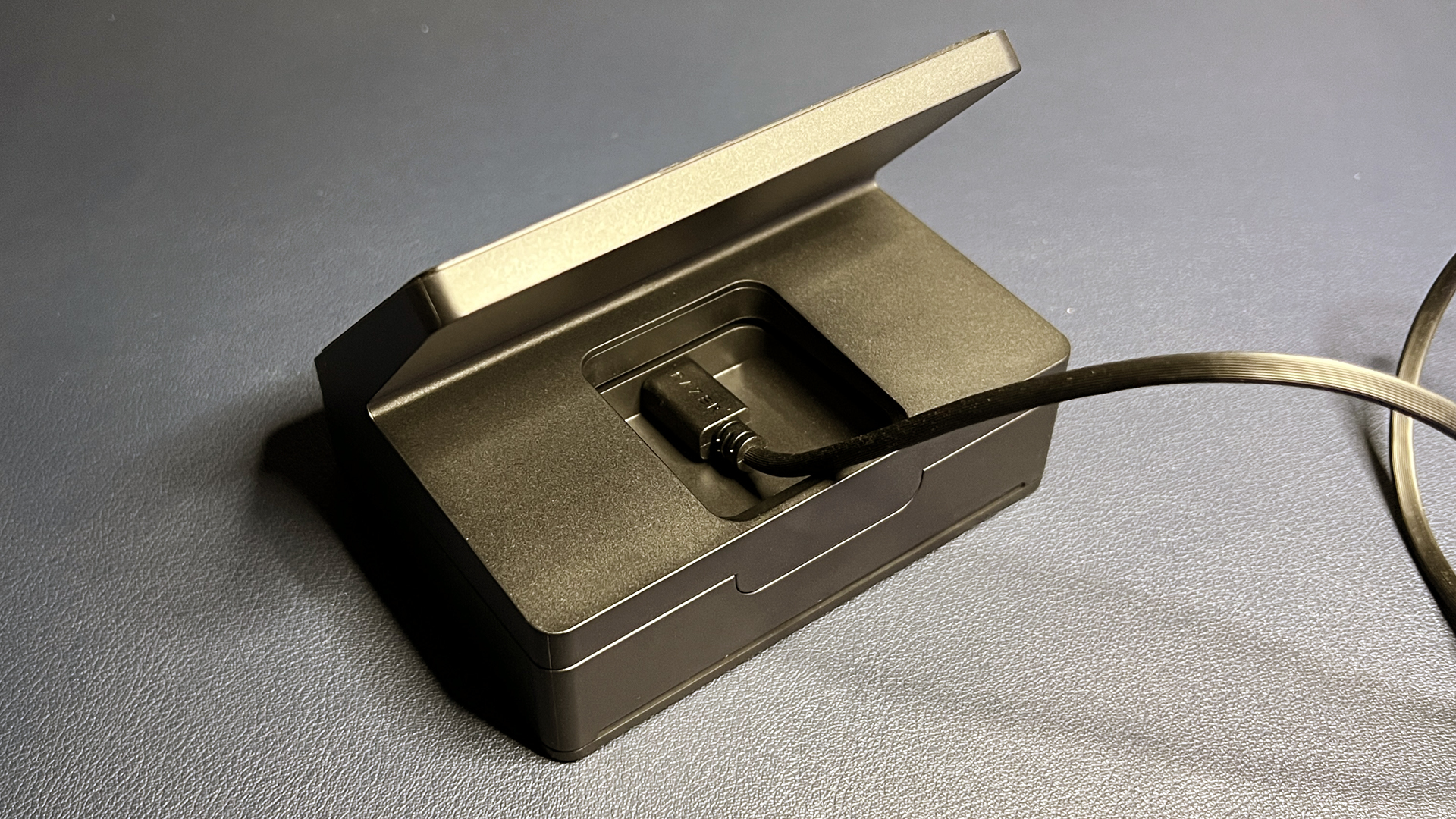
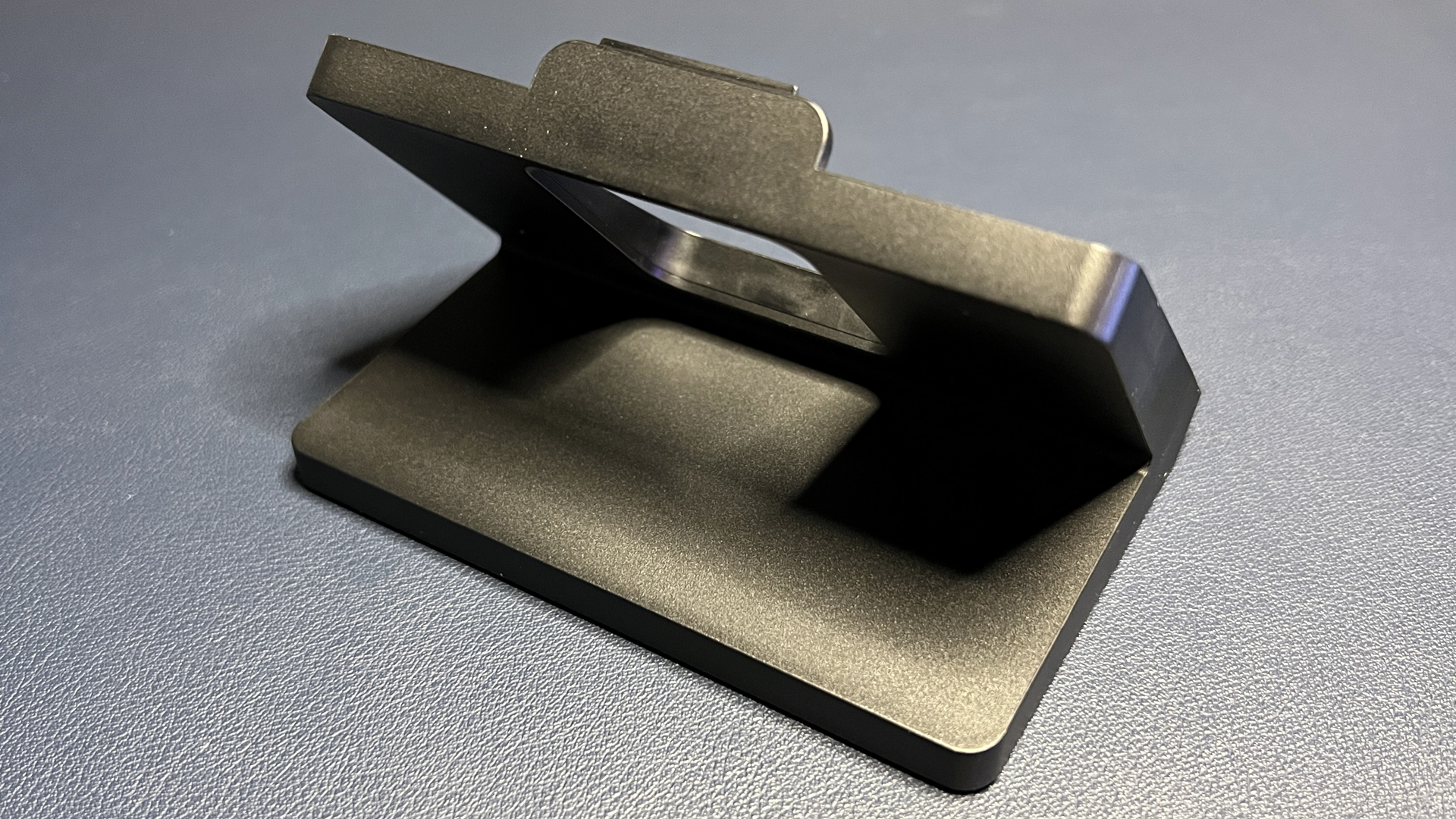
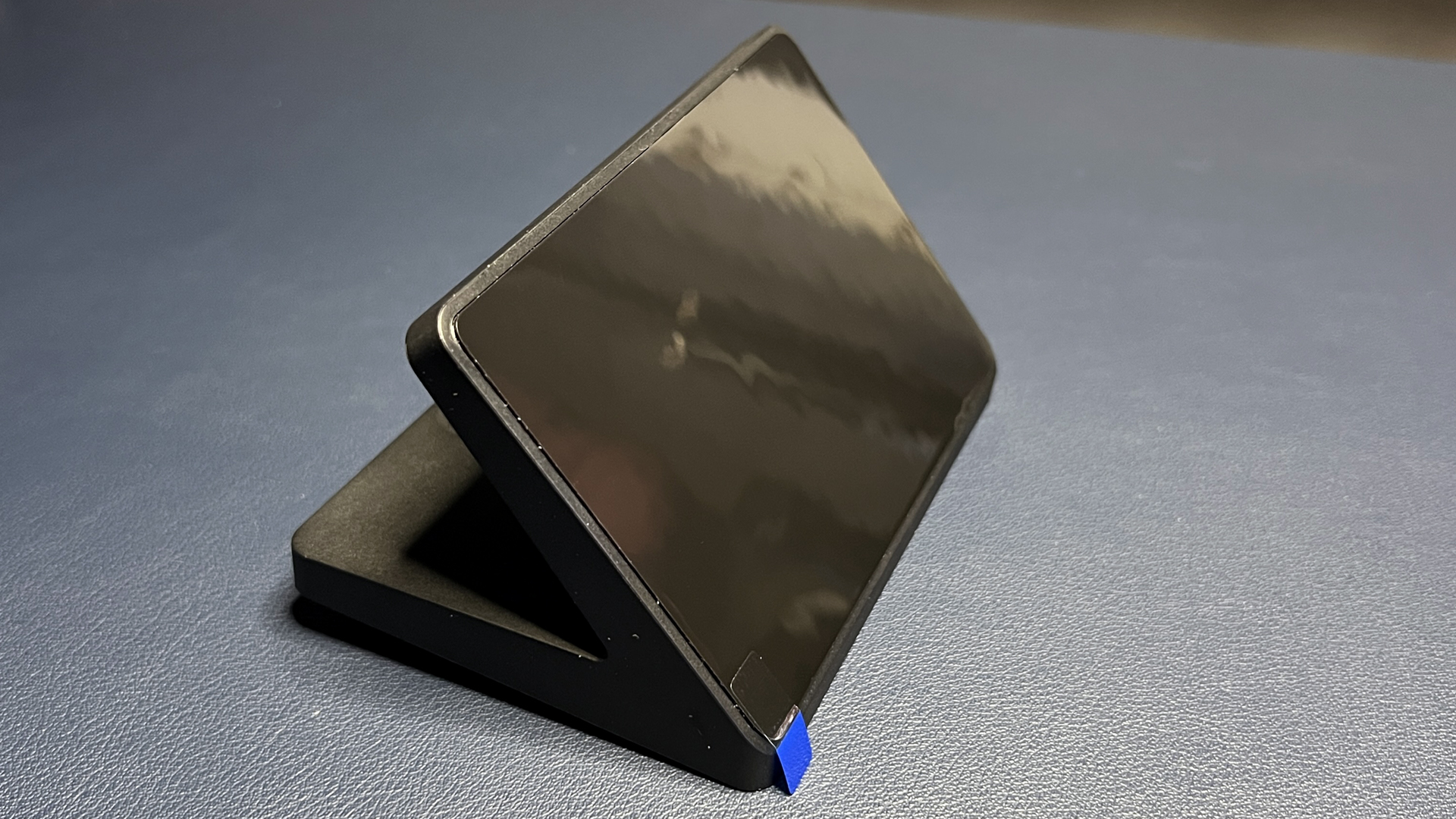
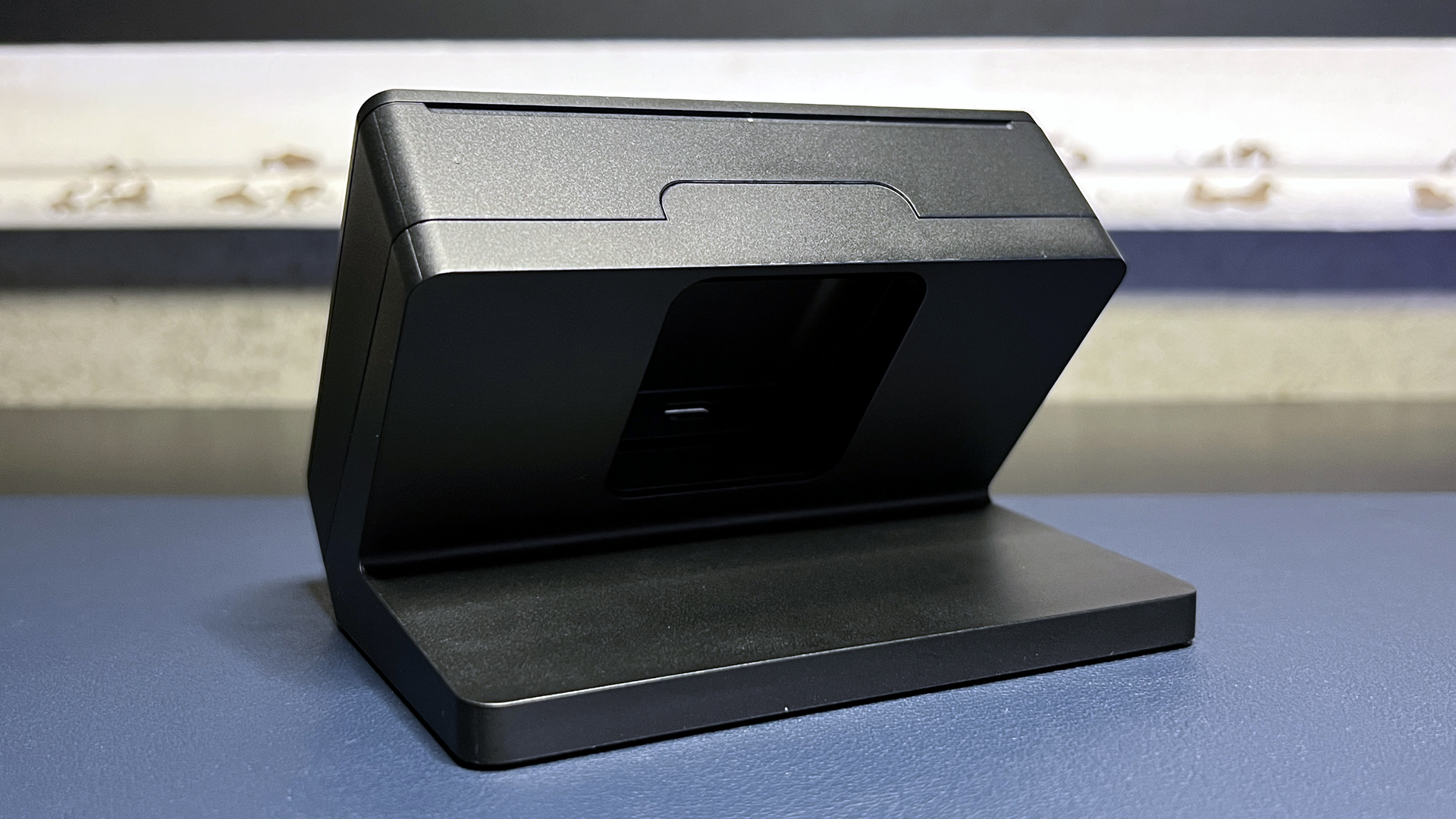
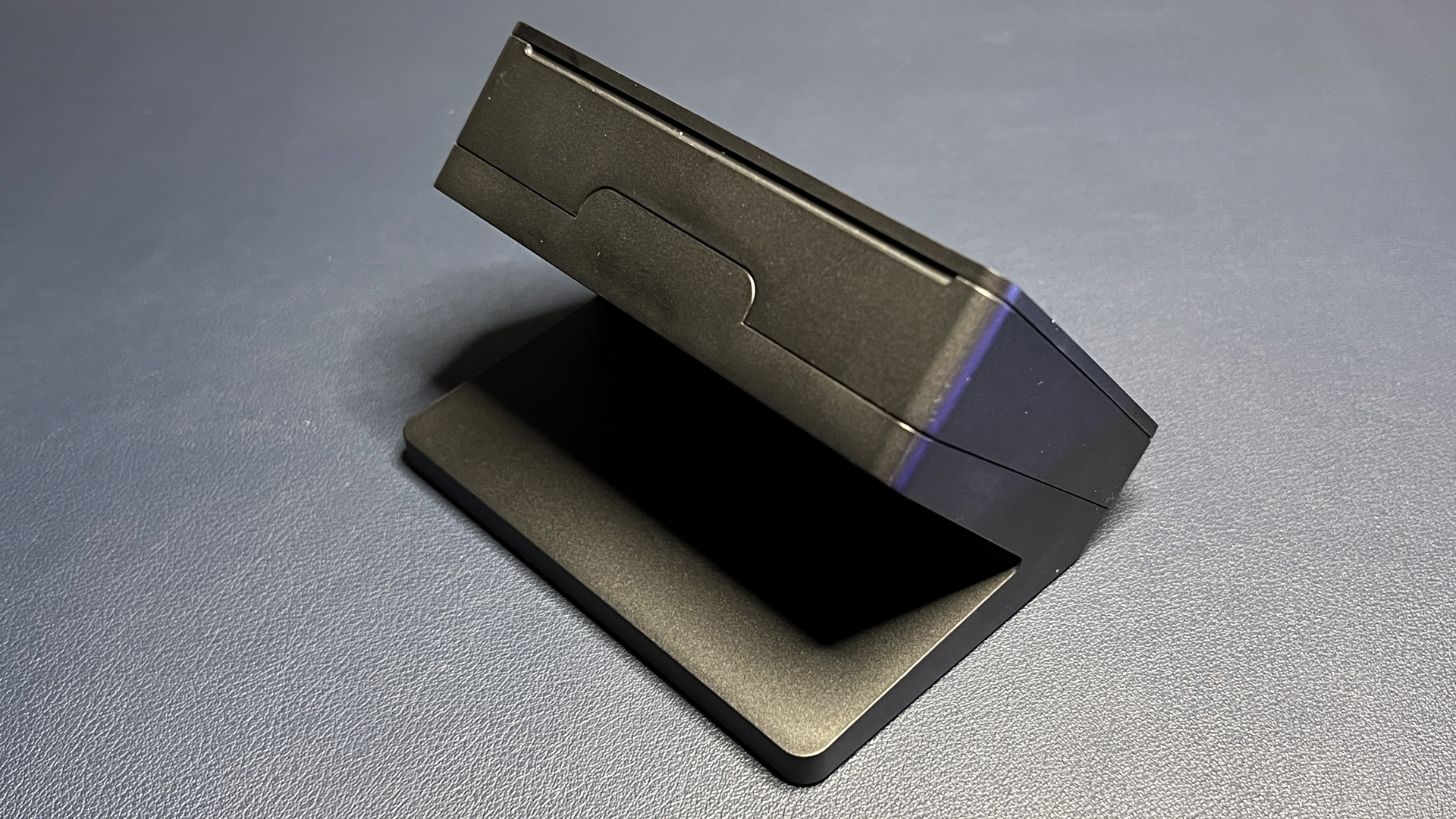
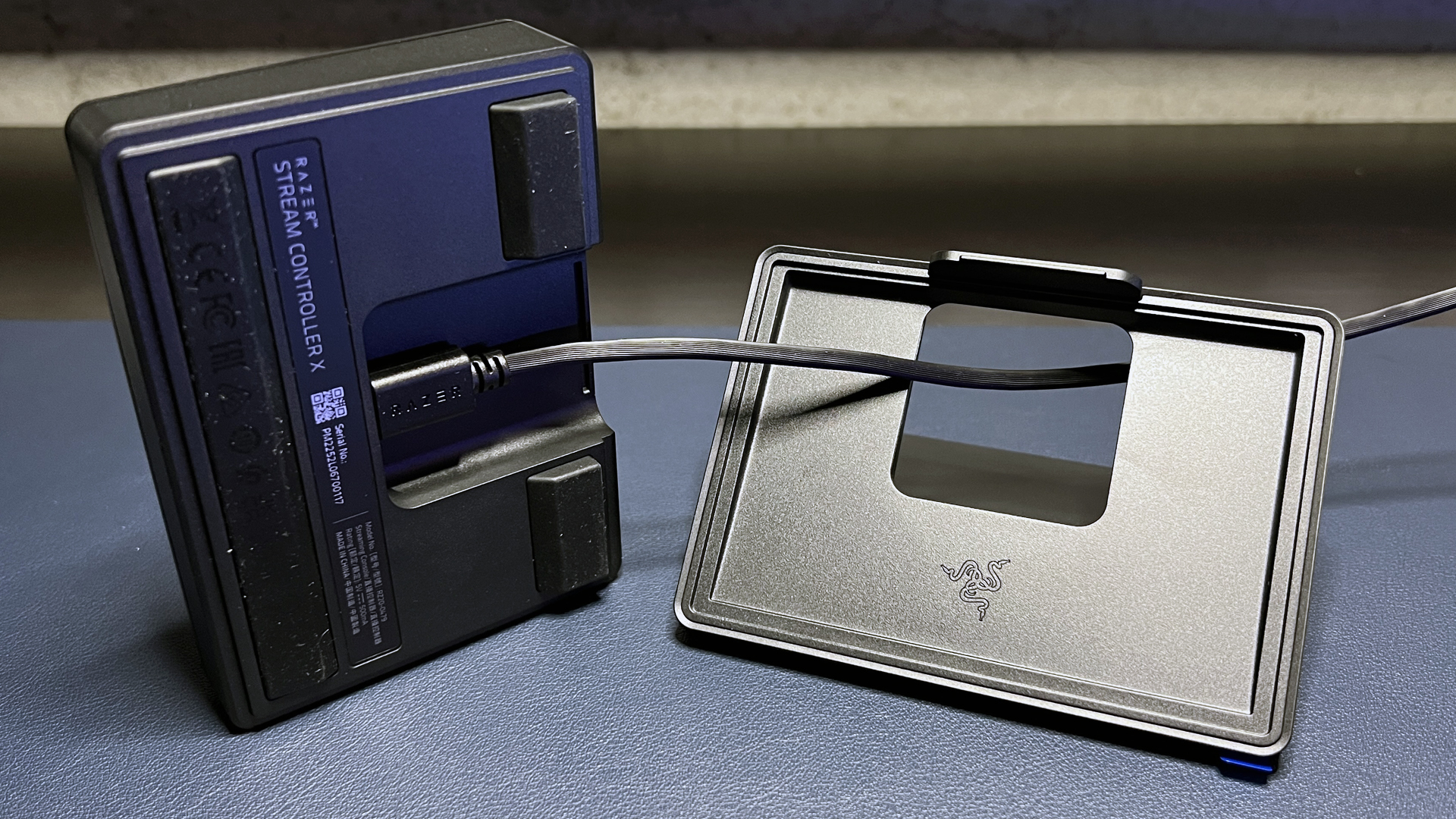
The Stream Controller X can be laid horizontally on your desk (it’s slightly angled), or you can place it in the included v-shaped magnetic stand, which places the device at a 50-degree angle. The stand has a cutout for the device’s USB-C cable — which works, but probably could have been better implemented, as it does seem to put some stress on the cable. The stand itself is very sturdy — much sturdier than the flimsy piece of plastic included with the recent Loupedeck Live S — and the decksnaps into place very easily.
The stand is pretty hefty, so I don’t think you have to worry about it sliding across your desk when you press a button. Apparently Razer/Loupedeck had this concern, however, so the bottom of the stand is lined with anti-slip microsuction tape.
Get Tom's Hardware's best news and in-depth reviews, straight to your inbox.
In the box, the Stream Controller X comes with the removable magnetic stand and a 6.5-foot (2 m) coated USB-C to USB-A cable, as well as an instruction booklet (and, of course, a Razer logo sticker).
Specs
| Buttons (Tactile) | 15 |
| Buttons (Touch) | 0 |
| Dials | 0 |
| Software | Loupedeck |
| Interface | USB-A |
| Cable | 2m USB-C to USB-A |
| Dimensions (W x H x D) | 4.37 x 3.17 x 1.18 inches / 111 x 80.7 x 20 mm |
| Weight | 0.39 pounds / 177 grams |
| System Requirements | Windows 10 64-bit / macOS 10.14 (or later) |
| MSRP / Price at Time of Review | $149.99 / $149.99 |
| Release Date | April 13, 2023 |
Buttons on the Stream Controller X
The Stream Controller X has 15 “switchblade” buttons — that’s right, Razer has finally figured out how to upcycle the remnants of its ambitious switchblade concept. (Actually, I’m pretty sure the company called the buttons on the first Stream Controller switchblade buttons as well, but these are much closer to the original switchblade design.)
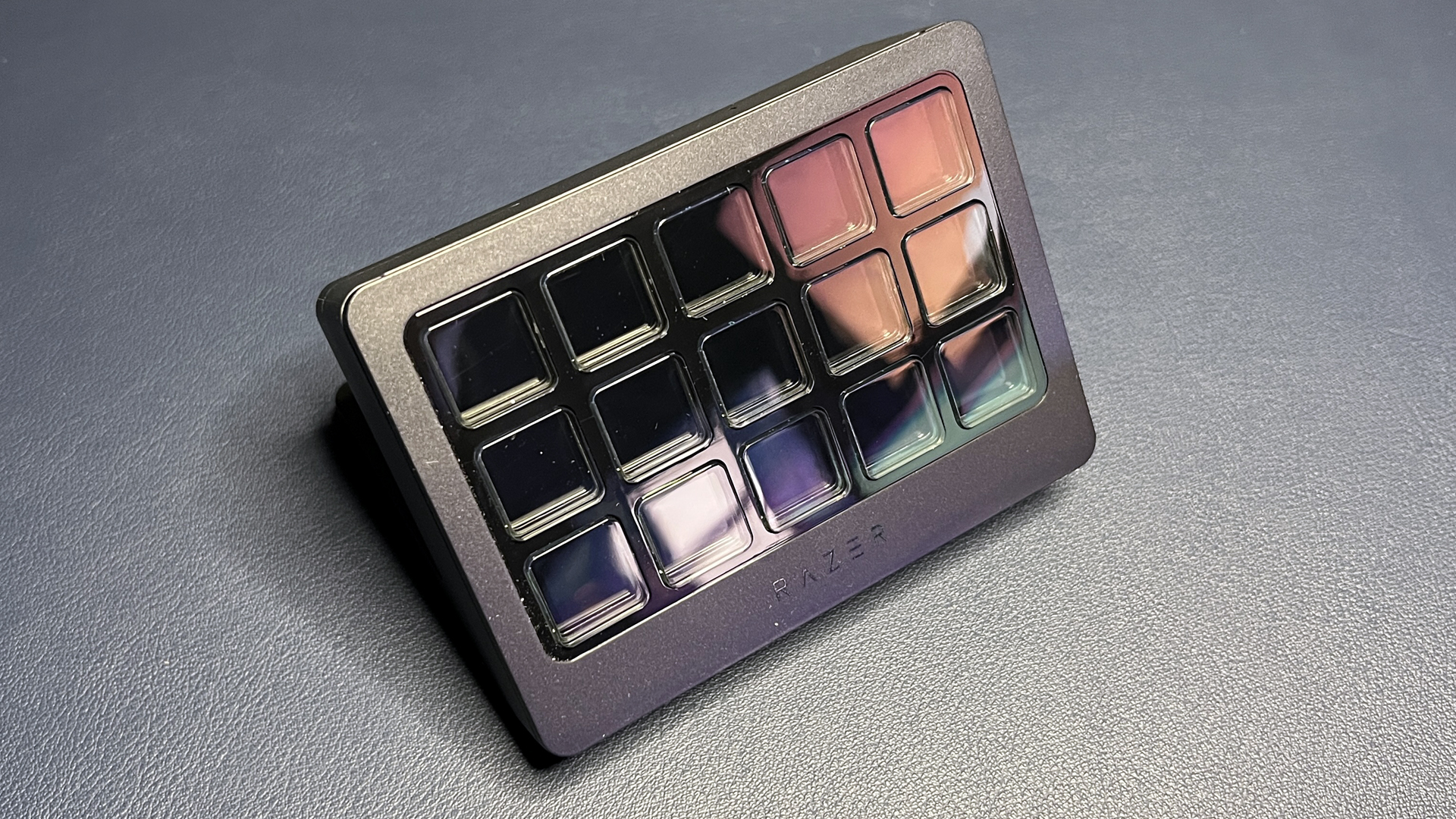
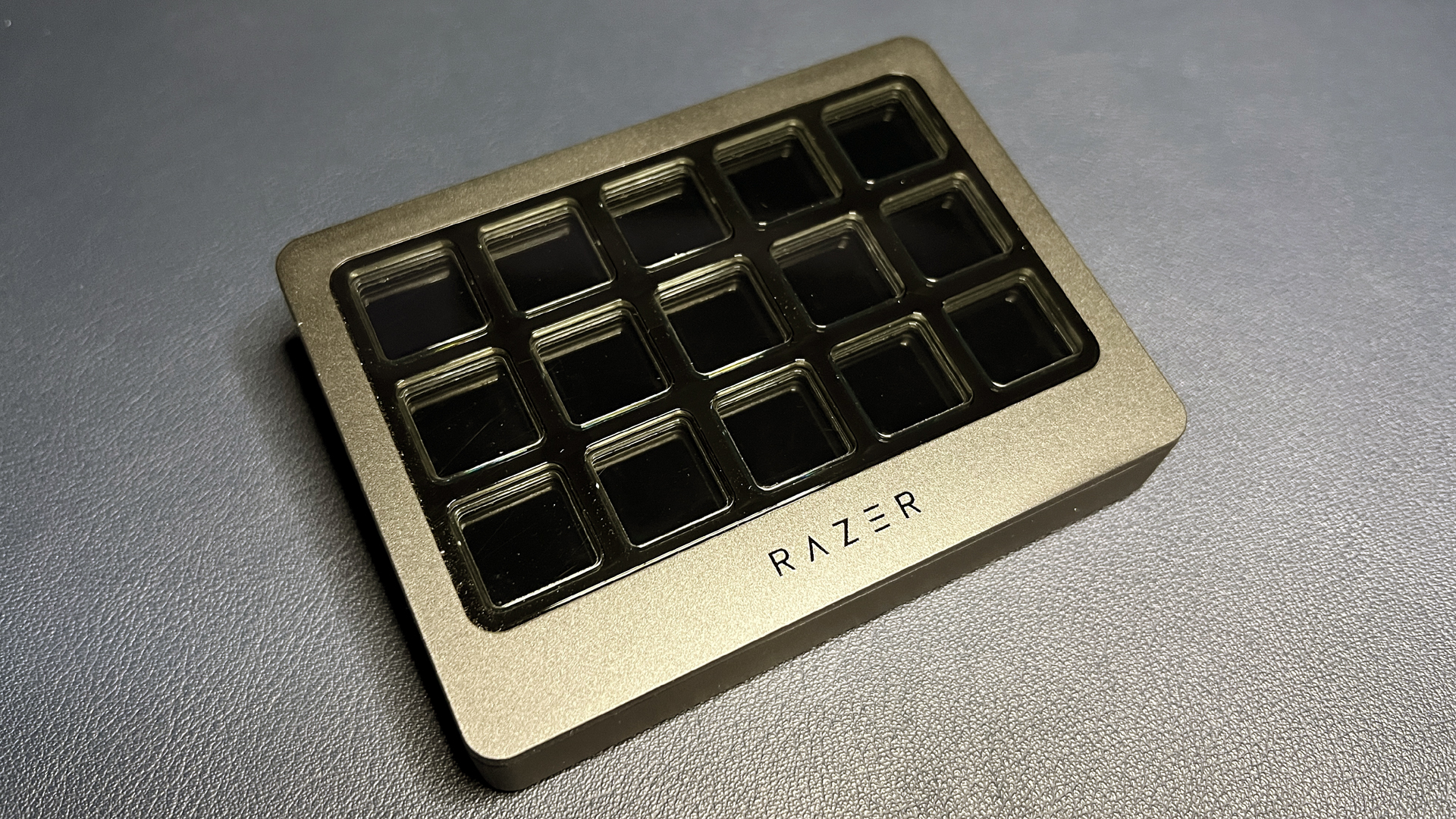
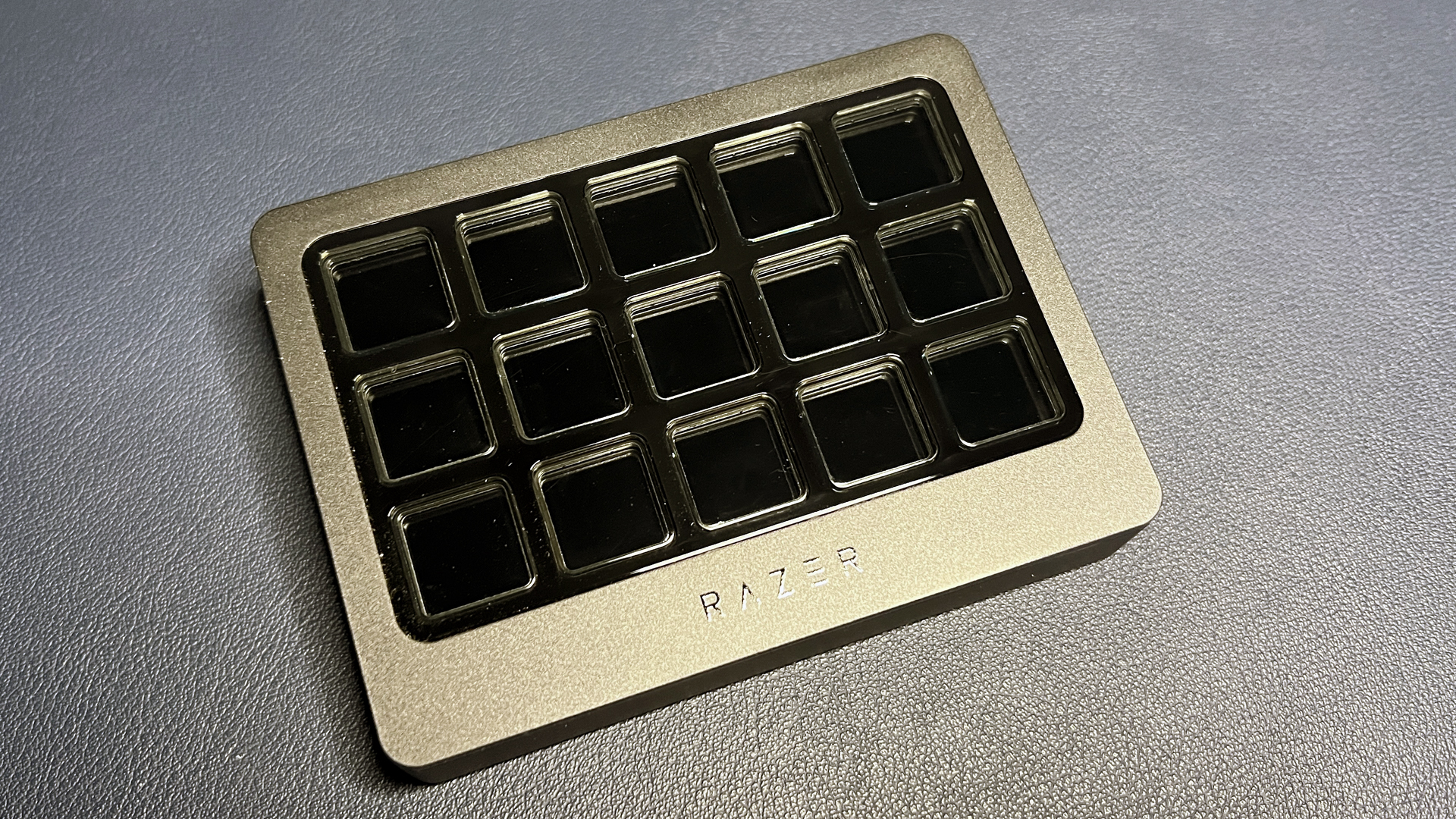
The buttons are arranged in a three-row, five-column grid (just like the MK.2’s buttons), and each button measures 0.63 inches (16 mm) square. They’re tactile, unlike the buttons on the first Stream Controller, which are touch-sensitive with haptic feedback. I’m a big fan of tactile buttons on streaming decks, and these offer good feedback (they feel pretty similar to Elgato’s tactile LCD buttons on the Elgato Stream Deck+, though they’re slightly smaller).
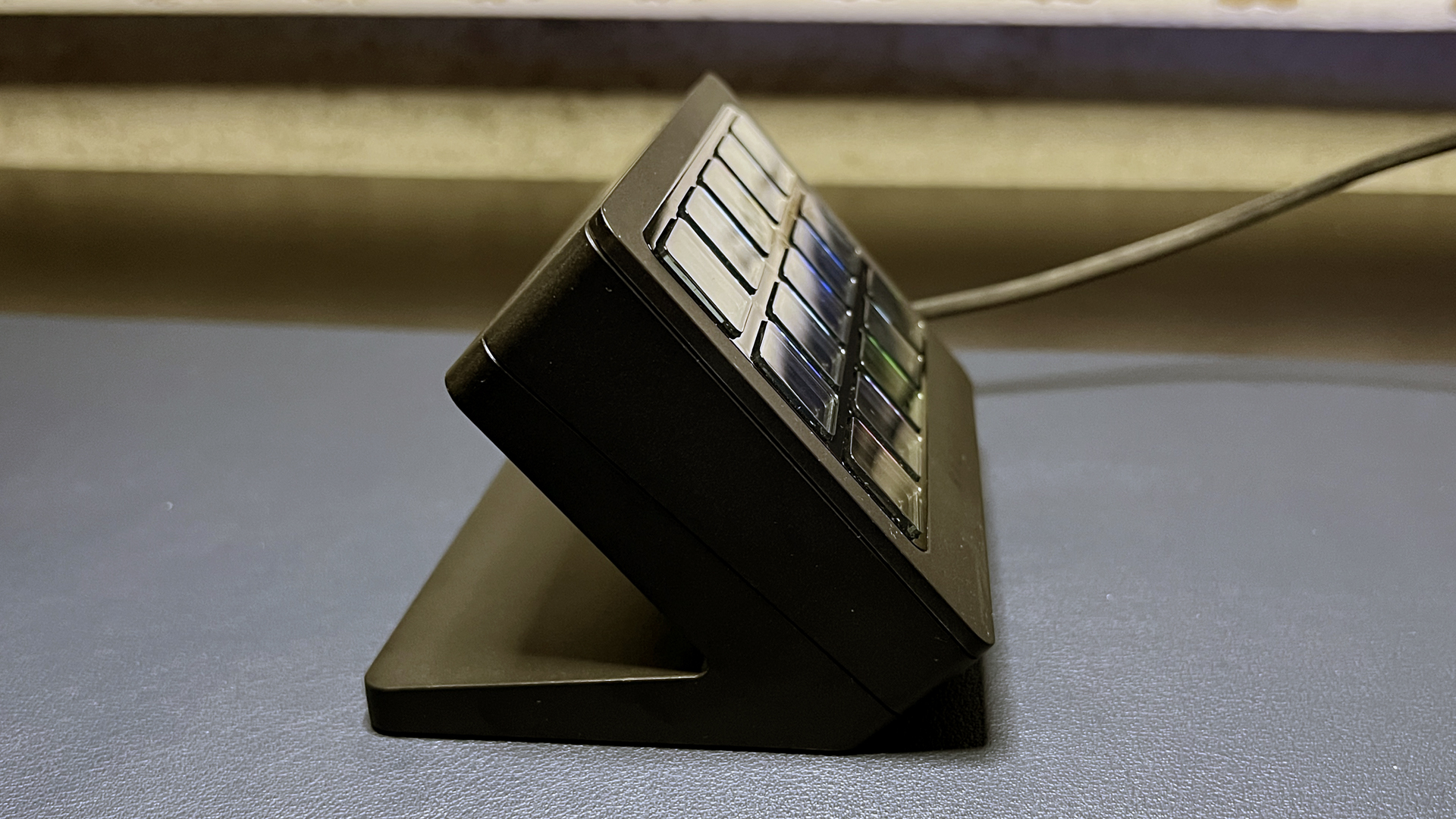
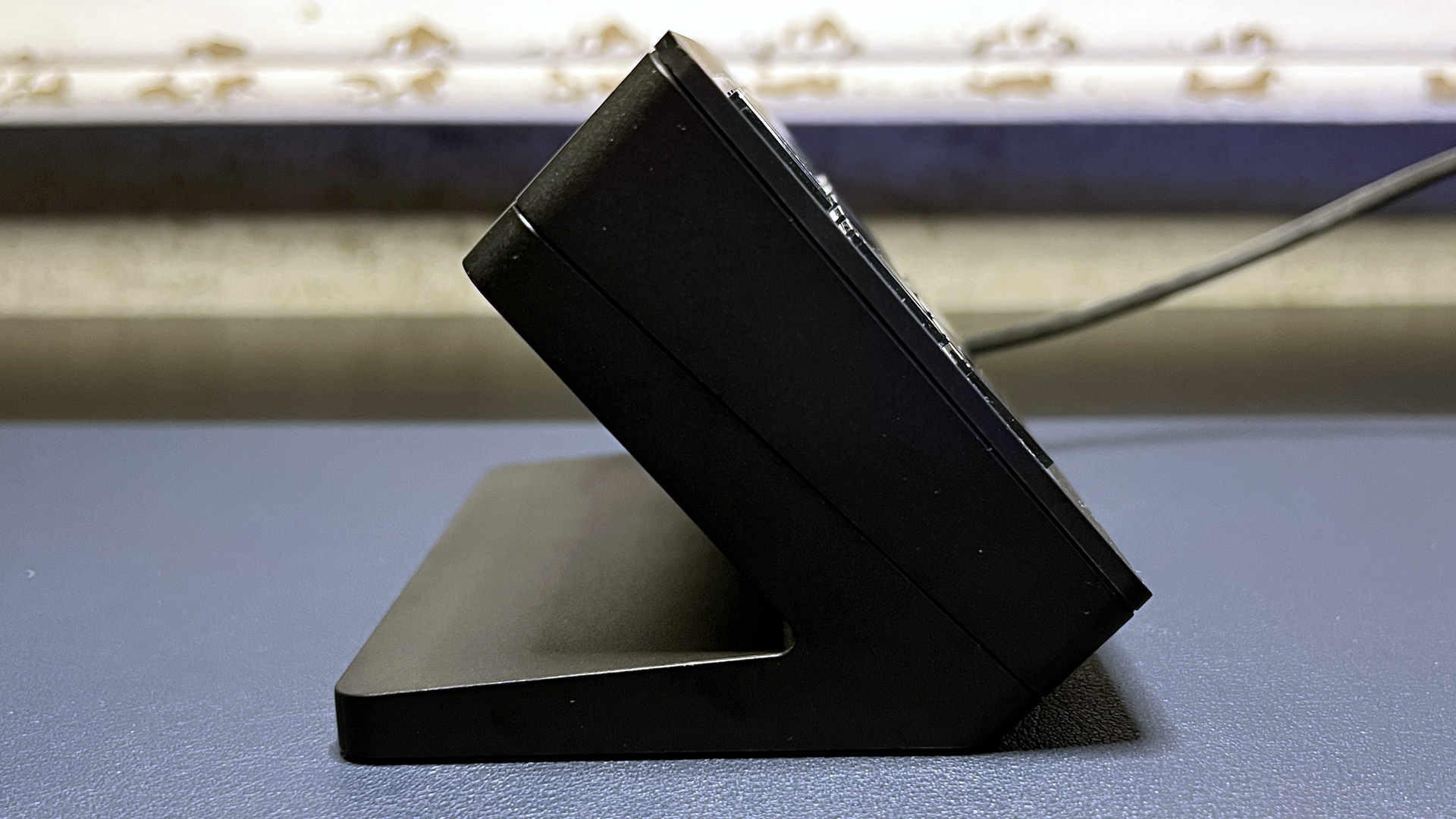
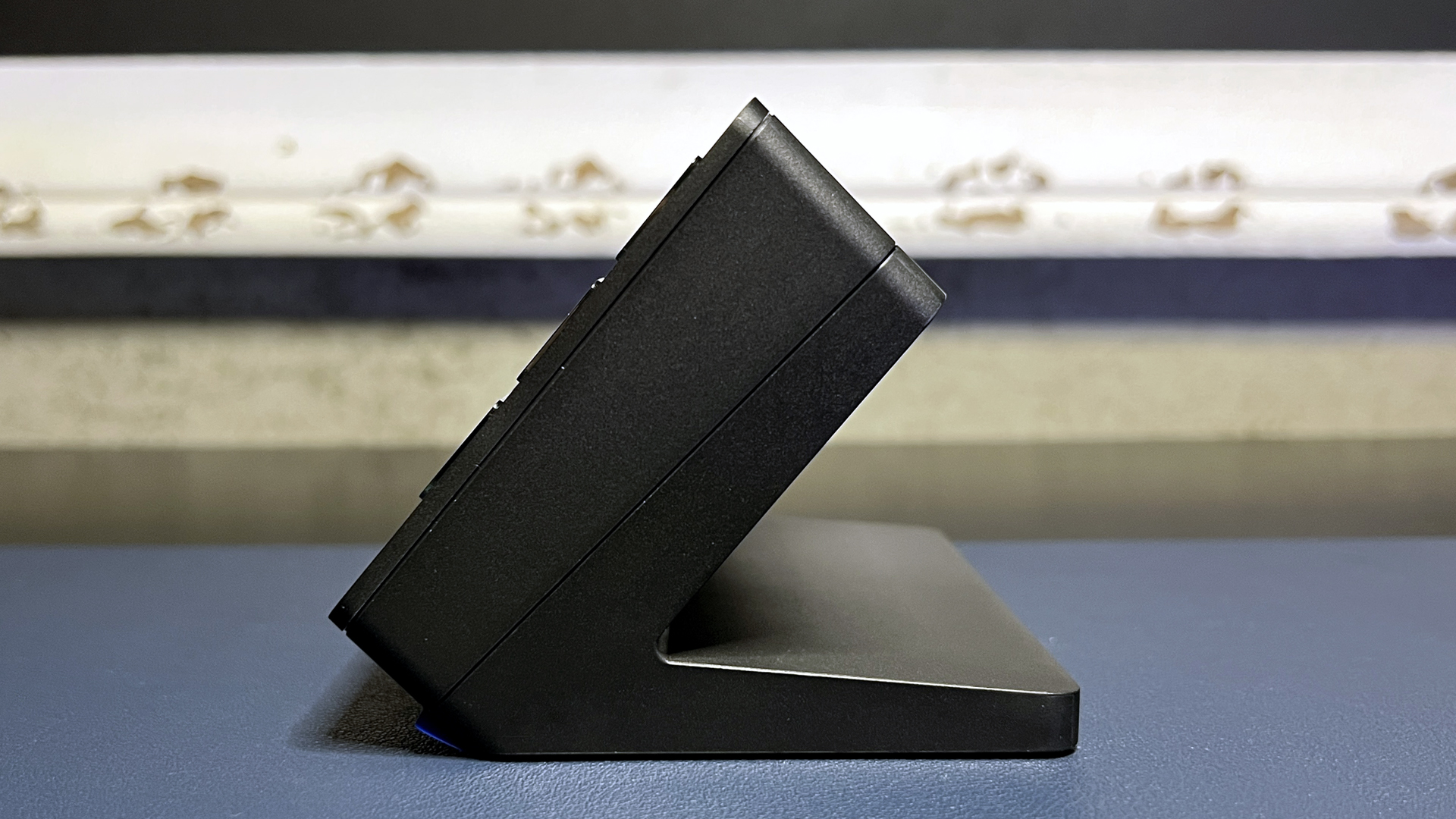
The Stream Controller X’s tactile buttons lack the combined touchscreen functionality of the first Stream Controller. The touch-sensitive buttons on the first Stream Controller were essentially one large touchscreen, and you could navigate through the Stream Controller’s pages using swipe gestures over said touchscreen.
On the Stream Controller X, the lower left and right corner buttons are dedicated to navigation (lower right only on the first page; lower left only on the last page). These dedicated navigation buttons cannot be reprogrammed, though their icons can be changed. So you don’t really get 15 programmable buttons on the Stream Controller X — you get 13 or 14, depending on the page. Loupedeck’s software supports up to 14 pages — minus the navigation, that’s still 184 programmable buttons, which is probably enough for most streamers. However, it is a little annoying that you can’t get rid of or even relocate these navigation keys.
Software of the Stream Controller X
The Stream Controller X requires Loupedeck’s software to run. (It also shows up as a module in Razer Synapse 3, but all that module does is kick you over to Loupedeck.)
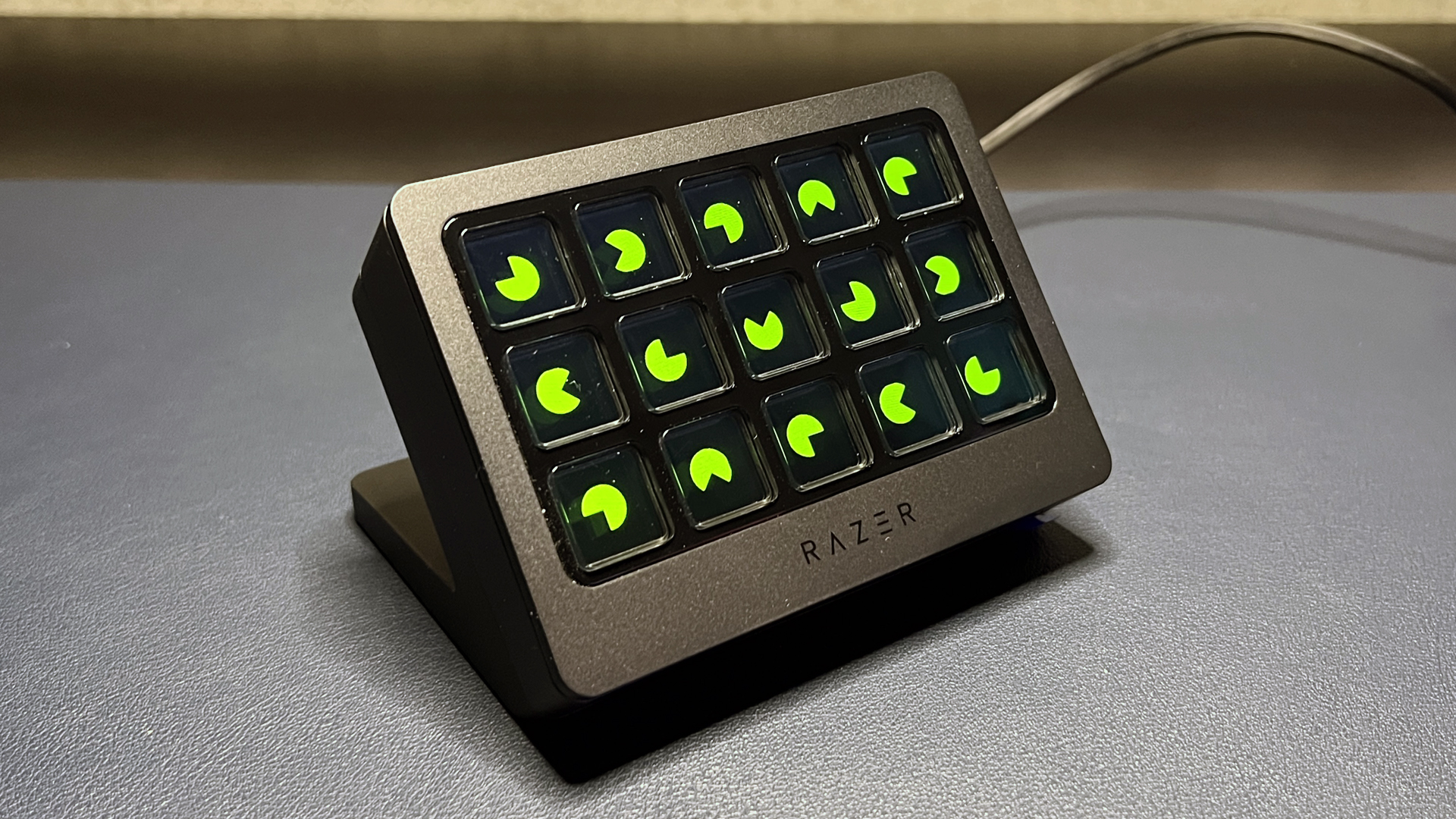
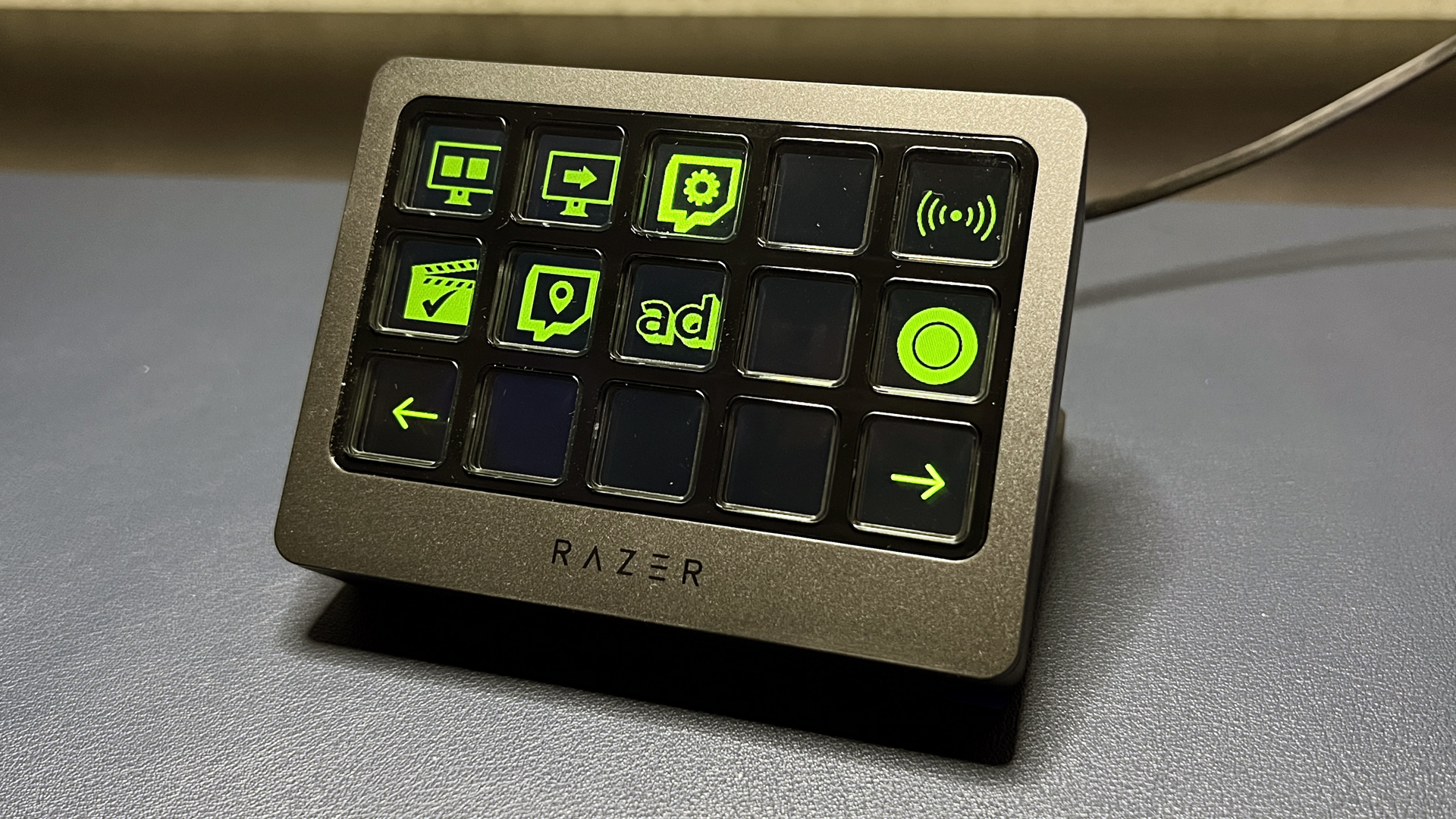
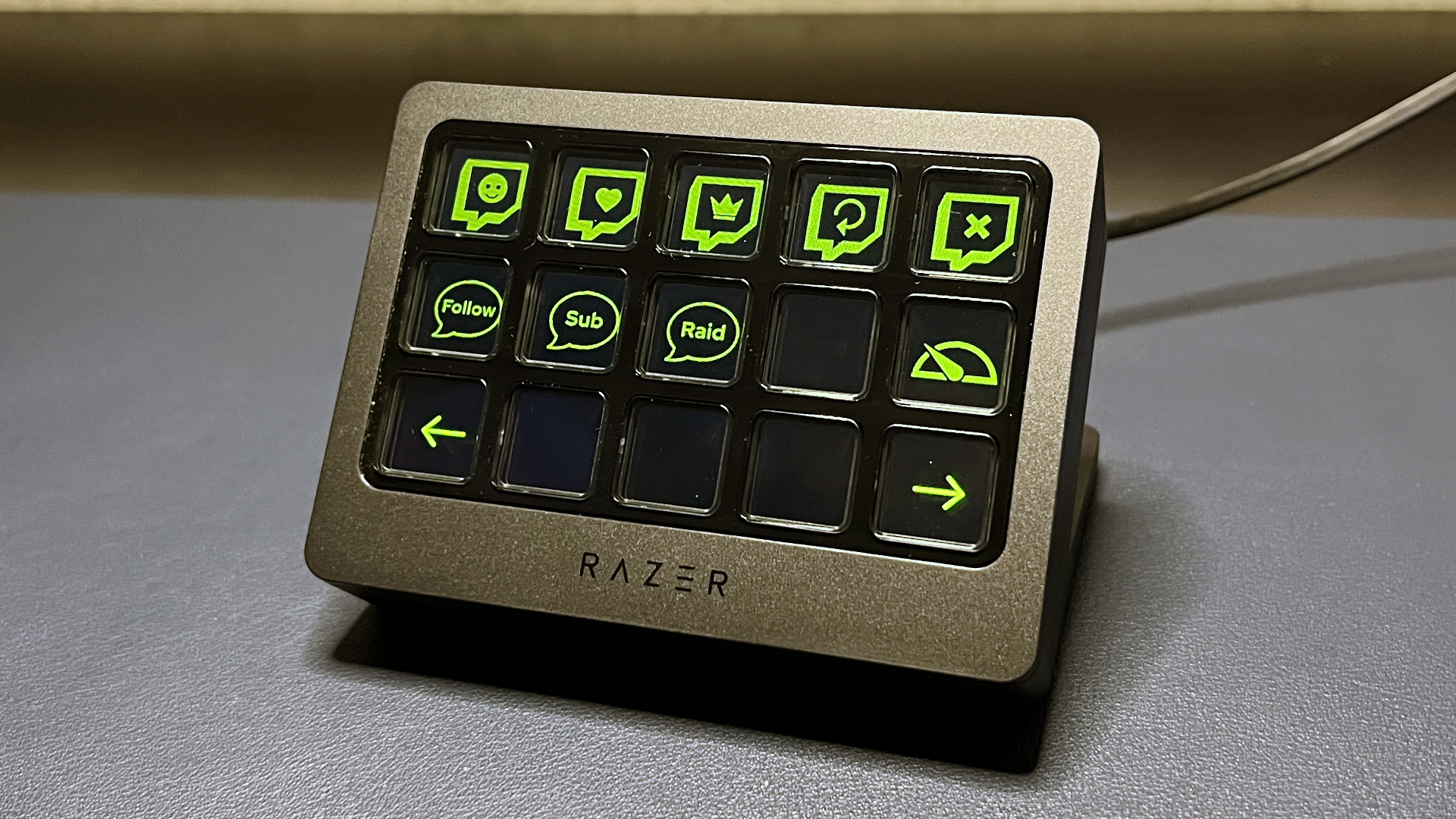
Streaming decks are all about customization, but don’t worry: the Stream Controller X isn’t a totally blank slate out of the box. It comes pre-loaded with a handful of presets, including four pre-made screens (featuring icons in Razer’s signature green) set up for streaming, social media, Twitch chat, and sound effects. You’ll still want to spend some time customizing the Stream Controller X to fit your specific needs, eventually, of course, but the pre-loaded content means you can start using the device immediately.
Loupedeck is all about its dynamic profiles and workspaces, which are collections of tools (buttons) tied to specific applications or games. In “dynamic mode,” Loupedeck’s software automatically switches to app-specific profiles when you’re using that app — so the console is essentially whatever you need it to be at any given moment. Loupedeck features native profile/plugin support for several apps, with pre-made profiles for streaming apps (such as OBS, Twitch, and Streamlabs) and creative apps (such as Ableton Live, Final Cut Pro, VMix, and Adobe’s creative suite).
This is all just a jumping-off point, of course — you can tweak these pre-made profiles in Loupedeck’s software, or you can create your own profiles and assign them to open with specific apps.
At the end of the day, profiles are just collections of button actions. You can program buttons with predefined actions (found in native or third-party plugins), or you can create your own custom actions using Loupedeck’s software. You can chain multiple actions together on one button using either the macro feature (pressing the button once causes all actions to be performed in sequence) or the multi-toggle feature (pressing the button once causes the first action to be performed, pressing it again causes the second action to be performed, etc; up to five actions can be multi-toggled).
Loupedeck’s software also features the Loupedeck Marketplace, which has additional free and paid assets from both Loupedeck and third-party creators. These assets include plugins, profiles, stream overlays, emotes and badges, presets and styles, icon packs, and sound packs. At the moment there are just two Razer plugins in the Marketplace, for the Razer Key Light Chroma and the Razer Audio Mixer.
The Bottom Line
The first Razer Stream Controller was just a Razer-branded Loupedeck Live. The Razer Stream Controller X technically isn’t just a Razer-branded Elgato Stream Deck MK.2 — but only because it’s not made by Elgato. Otherwise, it kind of... is. It really comes down to whether you prefer Loupedeck’s software and plugin support to Elgato’s (and Elgato’s tactile LCD buttons to Loupedeck’s haptic touch buttons), because the Stream Controller X is ultimately just Loupedeck’s software in an Elgato Stream Deck MK.2 with a Razer logo on the front.
Okay, it’s not exactly the same. The Stream Controller X has a well-designed, sturdy stand, even if the microsuction tape is probably overkill. But the design is very close — I assume Razer is going to come out with swappable faceplates in the near future, but maybe it should have launched with those. That’s not to say I don’t like it, because I do. The Stream Controller X is a nice, compact size (but still very sturdy), its buttons are bright, crisp, and tactile, and Loupedeck’s native support for Photoshop is my personal deal-maker over Elgato’s Stream Deck software.

Sarah Jacobsson Purewal is a senior editor at Tom's Hardware covering peripherals, software, and custom builds. You can find more of her work in PCWorld, Macworld, TechHive, CNET, Gizmodo, Tom's Guide, PC Gamer, Men's Health, Men's Fitness, SHAPE, Cosmopolitan, and just about everywhere else.
